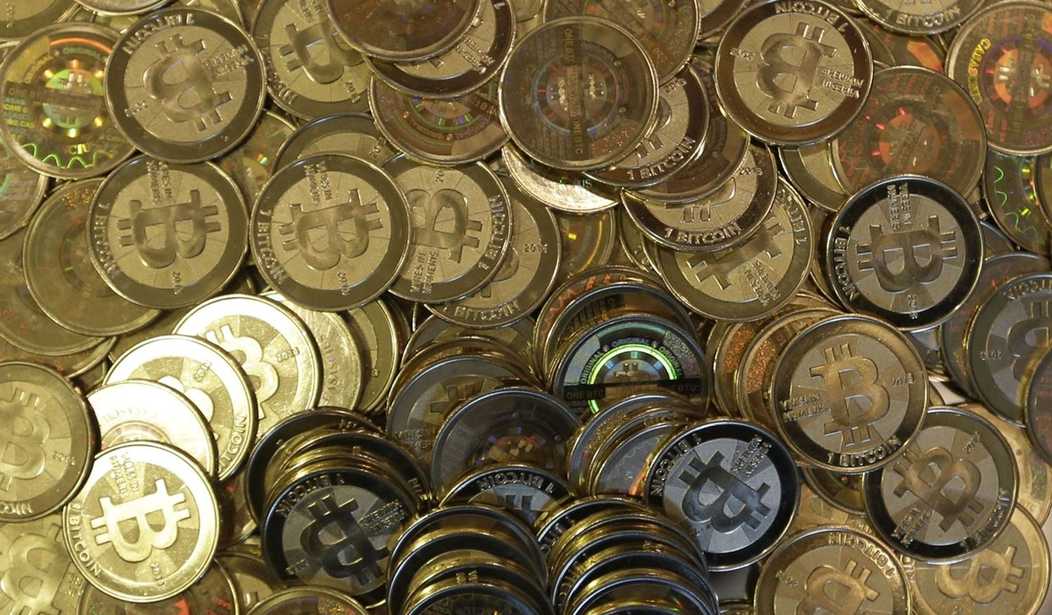In 2003, I started recommending Apple to my clients.
At the time, the stock had been destroyed. Prices dropped from a high of $36 per share to $12 when I bought it.
Shortly after I started buying, news came out there was massive insider selling… and the stock plummeted to $7.
Who was that insider?
Steve Jobs—the guy who rescued Apple.
On March 19, 2003, Jobs disposed of 27.5 million shares via his stock options. He would eventually sell a total of 55 million shares (via stock options sales to Apple) that year for an average price of $1.36 per share.
Imagine the calls I got from my clients at the time…
While I was buying Apple, Steve Jobs—the guy who was brought in to rescue the company—was dumping millions of dollars’ worth of stock…
People thought I was crazy.
But they fell into a trap that catches many amateurs who don’t understand investing in breakthrough technology… You can be brilliant at technology (like Jobs) and be just absolutely dumb at understanding how markets work.
Jobs was a marketing savant and a great CEO. He turned Apple around and made it the largest company by market cap in the United States.
But his mistake in 2003 cost him a bundle. Adjusted for stock splits, the shares he sold would be worth over $75 billion today.
So what did I see in 2003 that Jobs didn’t?
How to Value Cutting-Edge Technology
Jobs’ big mistake was he drew long-term conclusions about Apple’s value based on its stock price rather than on its technology.
Here’s what I mean…
In 2003, Apple’s most important product was the iPod. But only people with an Apple computer could use it. So the addressable market was only about 3% of computer users.
Recommended
However, I knew the company was working on a version of the iPod that would be compatible with personal computers. And PC users made up the other 97% of the market.
For me, the decision to buy Apple was easy.
I went out, bought an iPod, and confirmed it was an amazing device. I recognized the iPod as the most transformational music device since the Sony Walkman of the 1980s.
It was a no-brainer that PC users would fall in love with iPods—just as Apple users had. Except this time, Apple could sell iPods to a market of hundreds of millions of PC users instead of the tiny market of fewer than 10 million Mac users.
And that’s exactly what happened.
By 2004, Apple’s stock had doubled… And the company was well on its way to becoming the tech juggernaut we all know today. Since the lows of 2003, shares have gone from a split-adjusted 91 cents to $233.
My clients made a bundle.
So here’s the investment lesson from Apple…
When it comes to early stage technology like the iPod, I look at two key drivers to gauge the health of an investment: 1) the pace of innovation, and 2) the pace adoption.
Pace of Innovation and Pace of Adoption
The pace of innovation is how quickly a product or service is improving. The pace of adoption is how quickly people are using the product or service.
These are my favorite two metrics to gauge the health of early stage tech.
As I learned from Apple, price action can be the least-revealing factor of how successful an investment will be.
During times of negative sentiment, price doesn’t tell you how well a company is doing. It just shows you how scared everyone is. The underlying fundamentals are forgotten.
I’m sharing this ancient history with you because cryptocurrencies are having their own “2003 Apple moment.”
Just like the iPod, the technology behind cryptocurrencies is improving every day…
Developers are testing an innovation called the Lightning Network right now. It will allow bitcoin to essentially go from dial-up modem speeds to broadband speeds. This innovation will unleash enormous capabilities on the bitcoin network.
For example, the Lightning Network will allow bitcoin users to make almost limitless and instantaneous transactions at virtually zero cost.
The second—and ostensibly more important—metric for early stage tech investors is the pace of adoption. And we’re seeing rapid advances on this front:
- Next month, the Intercontinental Exchange (ICE) will launch a trading platform called Bakkt. The platform will allow ICE customers to buy, sell, and trade cryptocurrencies. It will also provide custody services. ICE owns the New York Stock Exchange and other global exchanges.
- By the end of the year, Fidelity Investments—which has $2.4 trillion in assets under management—says it will offer crypto products to its 27 million customers.
- Investment bank Goldman Sachs has announced it will launch a crypto trading desk. It’s also considering launching a crypto custody product for its institutional clients. The firm has already invested $400 million to acquire cryptocurrency exchange Poloniex.
- Global bank Citigroup—which has 200 million customers—has announced it will launch digital asset receipts (DARs). DARs will be similar to American depository receipts (ADRs), which are stocks that trade in the U.S., but represent shares of a foreign corporation. Instead of stocks, DARs will represent cryptocurrencies.
- Last week, brokerage firm TD Ameritrade announced it will offer crypto trading to its 11 million clients via a partnership with crypto exchange operator ErisX.
- Investment bank Morgan Stanley has announced it will provide bitcoin-trading swap products for its 3.5 million wealth management clients. (Swaps are a type of derivative.)
The list of traditional financial firms offering crypto trading to their millions of customers goes on and on.
As you can see, just like how Apple went from a tiny market to a huge market—crypto is about to do the same.
Don’t Get Distracted by Prices
We will look back on today’s crypto prices and marvel they were ever this cheap.
It’s easy to get trapped into thinking the market is right and you are wrong.
Many people made that mistake with Apple in 2003. I get that… because most folks think the market is rational.
But I’ve learned the market can go through long periods when it’s not rational—just like 2003 with Apple and now in 2018 with crypto.
I’m here to tell you today—in no uncertain terms—the same series of events that led me to buy Apple in 2003 is happening right now in crypto.
I know it’s unpleasant to watch the market get beat around like this. I hated watching my position in Apple drop 40% in early 2003.
We will always have volatility in early stage tech plays. That’s why we use small, uniform position sizes. The second key to thriving is to stay focused on the big picture.
The adoption of the crypto asset class by hundreds of millions of traditional investors is about to take a gigantic leap forward.
And just like the influx of hundreds of millions of PC users exploded Apple’s stock higher… the influx of hundreds of millions of traditional brokerage customers will do the same for crypto prices.
Those who position themselves now before this onrush of new investors will be in place to make truly life-changing wealth.
Let the Game Come to You!
Teeka Tiwari

Editor, The Palm Beach Letter and Palm Beach Confidential
And Official Cryptocurrency Expert to Townhall Media
>>The Bear Market in Cryptos is OVER! Click Here for Must-see Digital Currency Training Event<<

























Join the conversation as a VIP Member